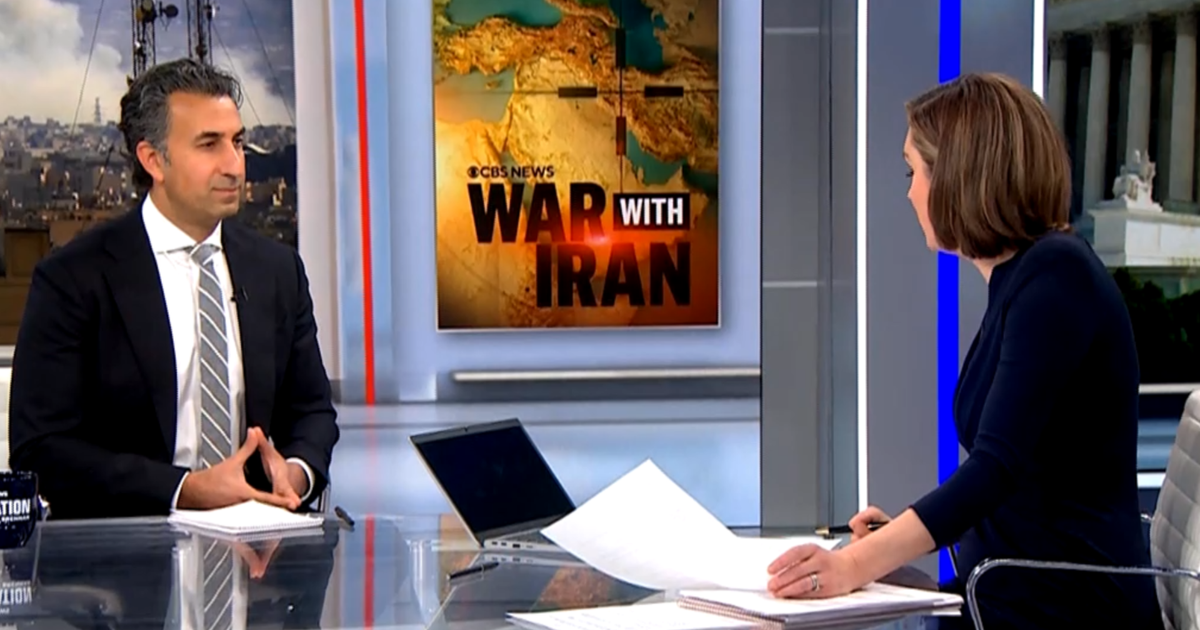January 6 committee threatens Meadows with contempt for refusing to testify
Washington — Mark Meadows, who served as White House chief of staff to former President Donald Trump, did not appear for a scheduled deposition Wednesday before the House select committee investigating the January 6 assault on the U.S. Capitol, one day after he said Tuesday he would no longer cooperate with the committee.
Congressman Bennie Thompson, the committee's chairman, told Meadows' lawyer in a letter dated Tuesday that a failure to appear would mean the committee is "left with no choice but to advance contempt proceedings and recommend that the body in which Mr. Meadows once served refer him for criminal prosecution."
Thompson said that the documents Meadows turned over when he was partially cooperating included an email discussing the appointment of alternate electors in some states and a Powerpoint entitled, "Election Fraud, Foreign Interference & Options for JAN 6." Thompson wrote that the committee also received a text exchange apparently encouraging a member of Congress to try to appoint alternate electors in some states.
Meadows' attorney, George Terwilliger, told Thompson in a letter earlier Tuesday that Meadows assumed a responsibility to protect executive privilege before and after his tenure, and "his appreciation for our constitutional system and for the separation of powers dictates that he cannot voluntarily appear under these circumstances."
CNN first reported that Meadows wouldn't work with the panel on Tuesday. Meadows confirmed his stance in an interview with the streaming news network Real America's Voice, saying the committee intended to ask about items that he considers protected by executive privilege, despite his efforts to reach an accommodation to share non-privileged information.
"In addition we found that in spite of our cooperation in sharing documents with them, they had issued, unbeknownst to us and without even a courtesy call, issued a subpoena to a third-party carrier trying to get information," Meadows said. "At this point, we feel like it's best that we just continue to honor the executive privilege and it looks like the courts are going to have to weigh in on this."
Thompson and Congresswoman Liz Cheney, its Republican vice chair, said in a statement that Meadows informed the committee he does not intend to cooperate with their probe further.
The two committee leaders said investigators still have "numerous questions" for Meadows about documents he gave the committee, including real-time communications with numerous individuals as the events January 6 took place.
Meadows' decision comes one week after Thompson said the former congressman was engaging with the committee and had turned over reams of documents. Thompson said last week Meadows was expected to appear for an initial deposition "soon."
Terwilliger, Meadows' attorney, at the time said he and his client were working with the select committee and staff to reach an accommodation that did not require Meadows to waive executive privilege.
The full House has already voted to hold former White House chief strategist Steve Bannon in contempt of Congress after he refused to comply with a subpoena for testimony and records. A federal grand jury then indicted Bannon on two counts of contempt of Congress. He pleaded not guilty, and federal prosecutors are pushing for a trial to take place by mid-April.
The January 6 panel last week also voted to recommend Jeffrey Clark, a former Justice Department official, be held in contempt of Congress for defying a subpoena for records and testimony. Thompson, though, said the committee reached an agreement with Clark's attorney to allow him to appear at a deposition Saturday, during which he was expected to assert his Fifth Amendment right against self-incrimination.
The deposition was postponed to December 16, the committee said, because Clark has a medical condition that precluded his participation.
An investigation by the Senate Judiciary Committee revealed Clark and Trump communicated in the run-up to January 6, and Clark raised doubts about the integrity of the 2020 presidential election. He also pushed claims about election irregularities in Georgia and suggested the Georgia legislature consider appointing a new slate of presidential electors.
The January 6 select committee has publicly acknowledged issuing subpoenas to 45 individuals and groups it believes have knowledge about the events surrounding the attack on the U.S. Capitol, during which a mob of Trump's supporters attempted to stop Congress from tallying each state's electoral votes.
Meadows was in the earliest group of former White House aides and allies of the former president to receive a subpoena from the House panel, which wants documents and testimony.
In a September letter asking Meadows to turn over information, Thompson said he has "critical information regarding elements" of the committee's investigation, as he was with Trump on January 6 and communicated with him and others about events at the Capitol. Documents filed with the committee, as well as records made public as part of separate probes from the House and Senate, also show Meadows communicated with top officials at the Justice Department about allegations of voter fraud in the 2020 presidential election and pushed for states to investigate fraud claims.
Zachary Hudak and Ellis Kim contributed to this report.



